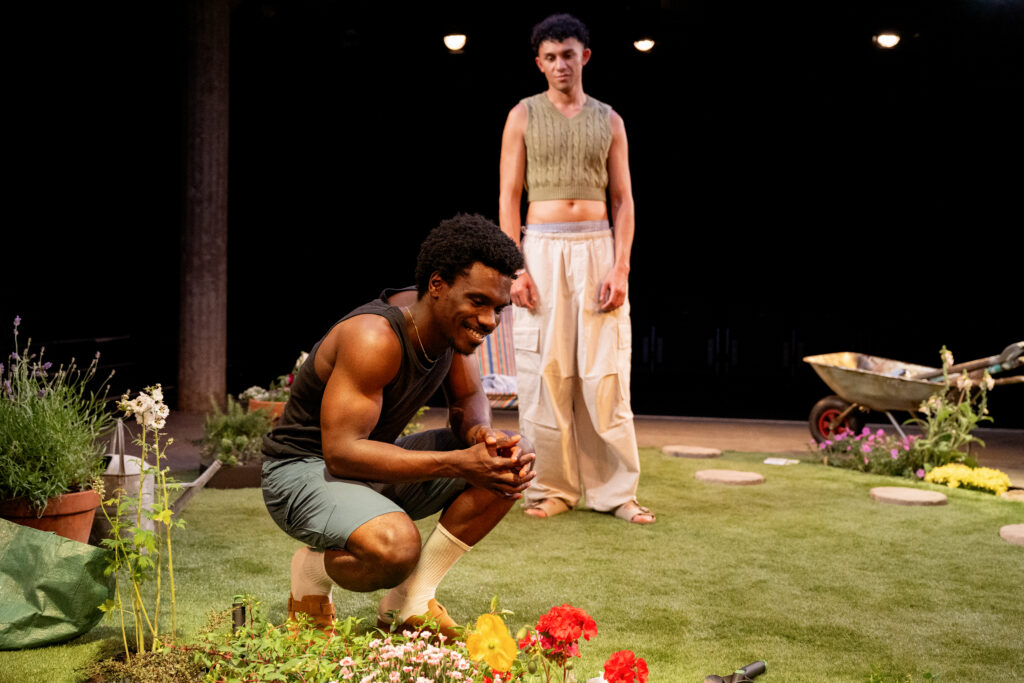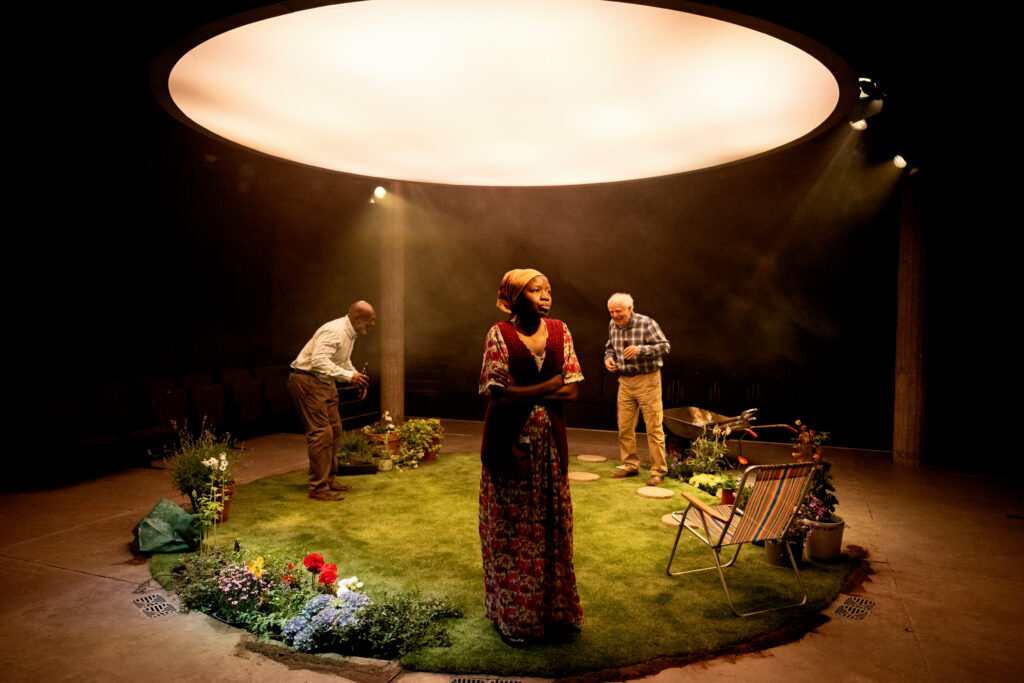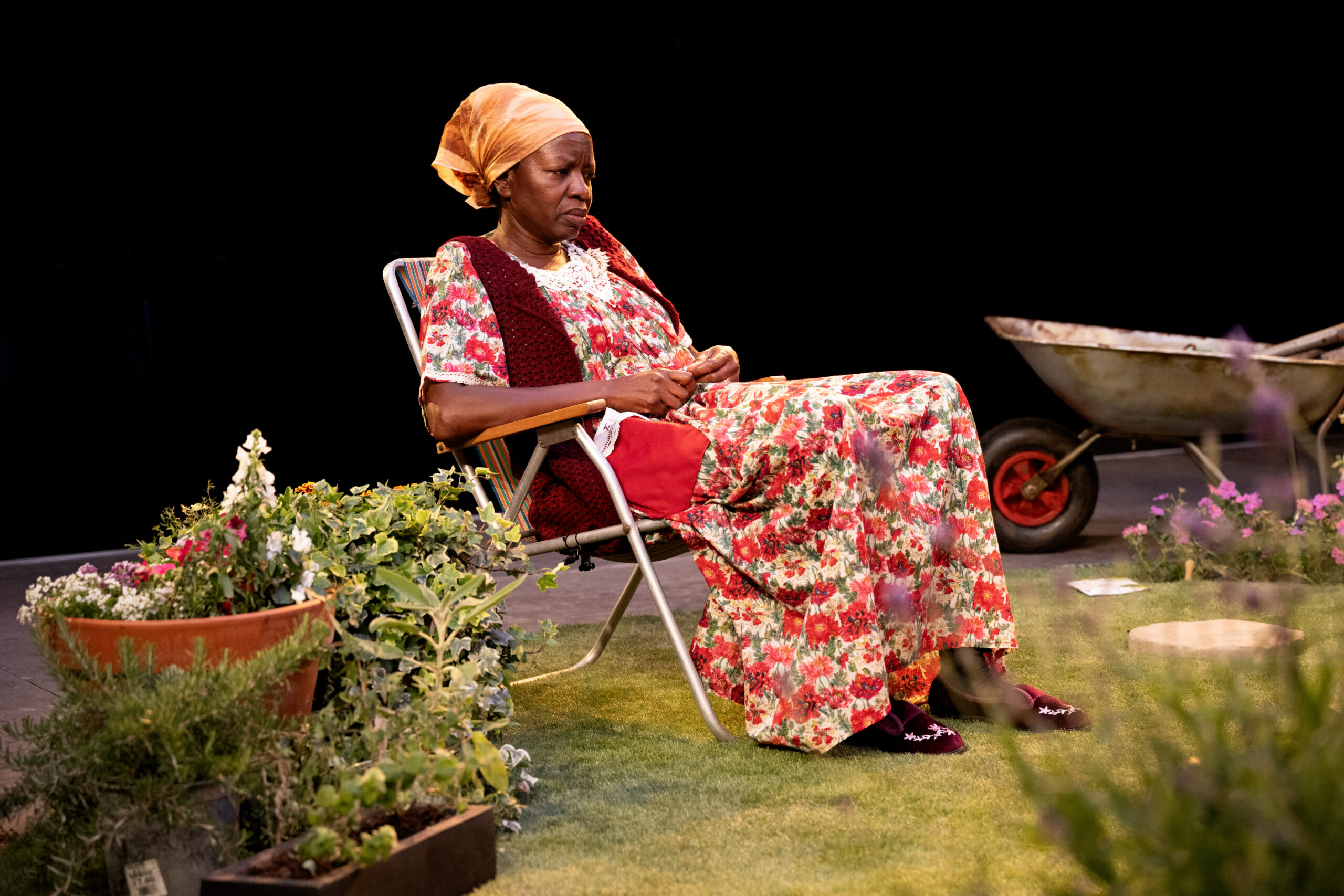Miss Myrtle’s Garden – Bush Theatre, London
Miss Myrtle’s Garden at the Bush Theatre is a tender, funny, and emotionally resonant new play about memory, family, and finding connection across generations.

Generational Threads and a Garden of Truths
Miss Myrtle’s Garden is a quietly ambitious piece, and it’s a pleasure to see something this thoughtful and layered at the Bush Theatre. After a run of sparer, fringe-feeling productions recently on the blog, this play offers a weightier narrative and deeper roots (pun intended). It tells a story both intimate and expansive: one woman’s garden, yes, but also one family’s inheritance – including love and grief. And it all starts when 82-year-old Myrtle invites her grandson Rudy and his ‘close friend’ Jason to come stay with her. As little stumbles in Myrtle’s memory become more significant, all must navigate a complex web of emotions, secrets, and memories against the sense of timing running out.
Diveen Henry as Miss Myrtle is extraordinary. She gives us a woman whose sharp humour and pride gradually yield to the growing disorientation of dementia. But Myrtle isn’t just her illness, she’s very much a living, breathing matriarch with fierce affection and biting wit. Michael Ahomka-Lindsay (Rudy) and Elander Moore (Jason) give tender, distinct portrayals of a couple trying to align their paths. One is drawn to reconciliation with his past, while the other tries to create a future. The ensemble is rounded out with thoughtful, believable performances from Gary Lilburn as Eddie and Mensah Bediako as Melrose, whose presence reminds us how love and memory linger even after death.
The non-linear structure works beautifully: time folds in on itself, giving the sense that we’re not just watching flashbacks, but experiencing the internal weather of Myrtle’s mind. Whether we’re seeing the past or memory or a ghost isn’t always clear, and that ambiguity is the point. Like grief, like dementia, time here refuses to behave.

Design, Place, and the Power of Green Space
The set (designed by Khadija Raza) is deceptively simple: a garden with lawn, flower beds, and outdoor furniture. But it offers both realism and metaphor. This is a world Myrtle has tended and lived in, but also retreated into as Peckham has changed around her. The sunken planting beds allow characters to engage physically with the space, grounding emotional scenes in tactile detail: hands in soil, roots unearthed, plants tended to, removed or bedded in.
The lighting design (Joshua Gadsby) is crucial in anchoring the audience in shifting times and seasons, using a large overhead lighting structure with great potential for a range of effects. At times, the garden feels warmly suburban; at others, mythic or strange. As Myrtle’s grip on time slips, so does ours, and the lighting and sound (Dan Balfour) becomes jarring and disorienting. The transitions are smooth but meaningful. It’s visually elegant and emotionally resonant.
This is, quietly, a political play. As the press notes remind us, access to green space is far from equal. As a Londoner who hasn’t had access to a garden in years, I felt the sharp edge of that disparity. Myrtle’s garden may be messy, even overgrown, but it’s hers. It is memory, refuge, legacy. And the fight to hold onto it is deeply moving.
The audience responded with warmth and laughter. Miss Myrtle’s scolding remarks (complete with teeth kisses and head turned defiantly aside) landed every time. Jason, the newcomer in the family fold, won people over with his openness and heart. As with many Bush Theatre shows, the audience left having seen the sort of people they might overlook in daily life. But here, their stories took centre stage.
Salterton Arts Review’s rating: 4/5
Miss Myrtle’s Garden on until 12 July 2025. More info and tickets here.
Trending
If you see this after your page is loaded completely, leafletJS files are missing.

